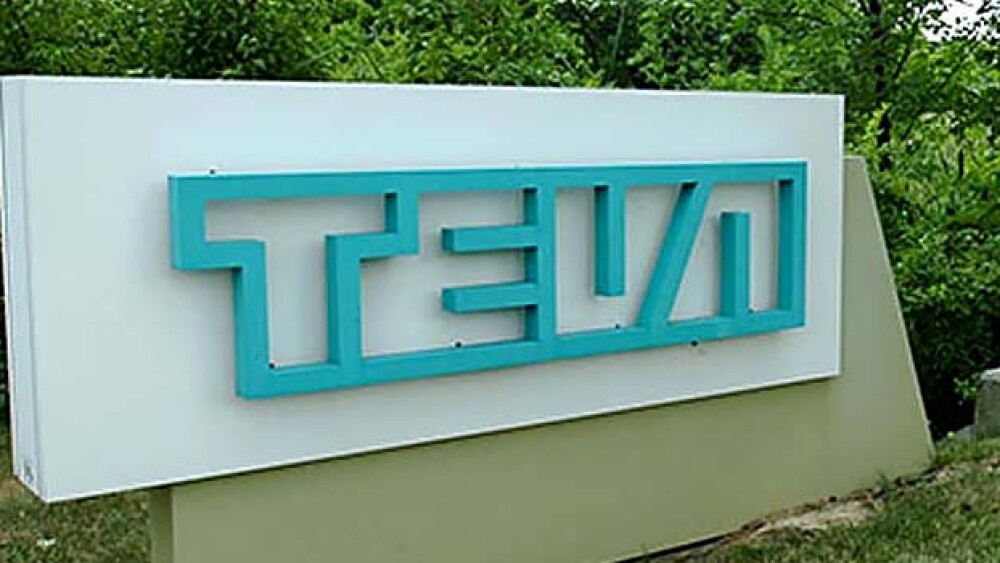Israel-based Teva Pharmaceutical’s second-quarter financial report led off with a dramatic 18 percent drop in quarterly revenue compared to the same period the year before. The company reported second-quarter sales of $4.7 billion.
Israel-based Teva Pharmaceutical’s second-quarter financial report led off with a dramatic 18 percent drop in quarterly revenue compared to the same period the year before. The company claims it is due to continued price erosion in the U.S. generics business, loss of revenue related to canceling some activities, divesting specific products, and generic competition for its Copaxone.
The company reported second-quarter sales of $4.7 billion. North American revenues for the quarter were $2.3 billion, a decrease of $906 million, or 29 percent, compared to the second quarter of 2017. It was partially offset by higher revenues from Austedo and the company’s distribution business. U.S. revenues were $2.1 billion in the quarter, down $899 million or 30 percent compared to second-quarter 2017.
“I am satisfied with our progress in the second quarter,” said Kare Schultz, Teva’s president and chief executive officer, in a statement. “The restructuring program is on schedule, we have already achieved a significant cost base reduction towards our target for the year and we continue to reduce our net debt. Copaxone maintained its market share and Austedo continued to show solid growth.”
Copaxone is used to treat multiple sclerosis (MS). For the quarter, Copaxone sales were $464 million, a decrease of 46 percent from the same period last year in North America. Sales in Europe for the quarter increased 1 percent to $140 million compared to the second quarter of 2017. In international markets, the drug brought in $22 million, a decrease of 15 percent compared to the same period in 2017.
Austedo is used to treat chorea associated with Huntington’s disease and tardive dyskinesia. In North America, the drug reported $44 million in North American sales. The product launched in the U.S. in April 2017 for Huntington’s disease and in August 2017 for tardive dyskinesia.
Bloomberg notes, “The tough market conditions are a persistent challenge for Teva Chief Executive Officer Kare Schultz, who was brought in last year to stem losses and get the company back on a growth trajectory. Not even a rosier outlook for profits this year could offset the drag on the stock, with investors putting a greater emphasis on the company’s prospects for growth in its largest market.”
Curt Wanek and Elizabeth Krutoholow, analysts with Bloomberg Intelligence, wrote in a note, “A lack of new significant launches, competition, currency headwinds, portfolio optimization and a tougher time for Copaxone,” were reflected in the first six months of the year.
Schultz also told Bloomberg in an interview that American generic drug prices seemed to be coming out of a period of an average of 15 percent decline each quarter, making them look much more like Europe’s, a typically less profitable market.
When Schultz took over the company, he warned investors in February that the company wouldn’t be able to set prices as high as expected and that 2018 sales might drop as much as 18 percent from the year before. He was totally accurate in that assessment. He has also put in restructuring policies that reduced costs by $3 billion by next year, cutting staff and closing factories. Investors have been overall positive about his efforts, nearly doubling share prices since November 2.
But they weren’t quite as enthused by this quarterly report, with the stock dropping almost 8 percent.
In the quarterly conference call, Schultz said, “I do think that we see a reduction in price erosion, a stabilization of the pricing dynamics in the U.S., but it’s not had any major impacts in the second quarter. …I cannot give you any firm conclusion of whether this improved pricing dynamic will continue or whether it’s just the reaction to the very, very bad pricing dynamics in the third and fourth quarter of last year. I don’t think it will come back…. I think we have reached a new level of generic pricing, which is close to the European level.”





